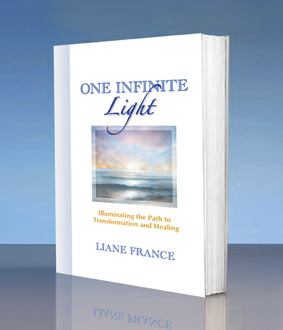
The Choice of Hijab
Inappropriately attired, over-exposed, immodest for the circumstances, I was embarrassed and mortified as I attracted a great number of disapproving stares and frowns. If someone had offered me a full burqa, I would have gladly donned it! On this unusually warm spring day in the early 1970s, two friends and I had decided to take our toddlers to the Brookfield Zoo near Chicago, Illinois. It was a good choice—the next one, however, definitely wasn’t.
Loving to sew, I had been making new clothes for the summer, including a garment that was becoming popular, the halter top. I decided to wear the one I had just finished, one that resembled a bikini top and was quite revealing of my ample bosom. What was I thinking!?! My friends were comfortable in their T-shirts and slacks; I was miserable as I jiggled along from one exhibit to the next.
No one likes to be gawked at or derided as I was that day. Muslim women who wear the hijab can relate—they experience a similar response from many when out in public. However, while I deserved scorn and ridicule for my ridiculously unsuitable clothing choice, they do not.
We judge amiss if we immediately assume that each Muslim woman who covers her hair is being oppressed and coerced into conformity because of the requirements of their culture. While that is most certainly the case in some predominantly Muslim countries, many Muslim women choose to wear hijab in respect of and adherence to the standards of modesty and reserve they believe are outlined in the tenets of their faith, finding it liberating rather than burdensome.
Critics of the wearing of hijab, and other types of body-covering Muslim garments, see the practice as repressive to women and injurious to healthy gender relations. They also feel it encourages adherence to outdated beliefs that women are unequal to men and should be subject to male domination. One could easily argue that this erroneous interpretation of God’s law is echoed in sects of the Christian and Jewish faiths as well. But the most important question must always be, “Are women being intimidated into certain customs and behavior by enforced religious mandate and/or social pressure, or are they voluntarily and comfortably fulfilling the requirements of their faith as they understand it?”
We mustn’t let preconceived ideas, misconceptions, prejudices, or erroneous judgments cloud our vision when advocating for human rights. Care needs to be taken that we don’t tread on the right of choice for those seeking to adhere to religious standards as long as the free will of the individual is not compromised. However, it is also imperative to state that it is the responsibility of each one of us, regardless of rank or religious affiliation, to speak out against any dogma, theology, doctrine, or practice that promotes suppression of individual liberty or advocates violence in any form.
Women who choose to wear hijab as an indication of faithfulness to what they believe should be supported and admired—this also applies to those Muslim women whose sensibilities differ and choose otherwise. Shakespeare offered this sage advice, “This above all: to thine own self be true.” While we may not always understand or agree with the beliefs of others, we must respect their right to make choices for their lives that are reflective of their character, morals, and personal values.
Inappropriately attired, over-exposed, immodest for the circumstances, I was embarrassed and mortified as I attracted a great number of disapproving stares and frowns. If someone had offered me a full burqa, I would have gladly donned it! On this unusually warm spring day in the early 1970s, two friends and I had decided to take our toddlers to the Brookfield Zoo near Chicago, Illinois. It was a good choice—the next one, however, definitely wasn’t.
Loving to sew, I had been making new clothes for the summer, including a garment that was becoming popular, the halter top. I decided to wear the one I had just finished, one that resembled a bikini top and was quite revealing of my ample bosom. What was I thinking!?! My friends were comfortable in their T-shirts and slacks; I was miserable as I jiggled along from one exhibit to the next.
No one likes to be gawked at or derided as I was that day. Muslim women who wear the hijab can relate—they experience a similar response from many when out in public. However, while I deserved scorn and ridicule for my ridiculously unsuitable clothing choice, they do not.
We judge amiss if we immediately assume that each Muslim woman who covers her hair is being oppressed and coerced into conformity because of the requirements of their culture. While that is most certainly the case in some predominantly Muslim countries, many Muslim women choose to wear hijab in respect of and adherence to the standards of modesty and reserve they believe are outlined in the tenets of their faith, finding it liberating rather than burdensome.
Critics of the wearing of hijab, and other types of body-covering Muslim garments, see the practice as repressive to women and injurious to healthy gender relations. They also feel it encourages adherence to outdated beliefs that women are unequal to men and should be subject to male domination. One could easily argue that this erroneous interpretation of God’s law is echoed in sects of the Christian and Jewish faiths as well. But the most important question must always be, “Are women being intimidated into certain customs and behavior by enforced religious mandate and/or social pressure, or are they voluntarily and comfortably fulfilling the requirements of their faith as they understand it?”
We mustn’t let preconceived ideas, misconceptions, prejudices, or erroneous judgments cloud our vision when advocating for human rights. Care needs to be taken that we don’t tread on the right of choice for those seeking to adhere to religious standards as long as the free will of the individual is not compromised. However, it is also imperative to state that it is the responsibility of each one of us, regardless of rank or religious affiliation, to speak out against any dogma, theology, doctrine, or practice that promotes suppression of individual liberty or advocates violence in any form.
Women who choose to wear hijab as an indication of faithfulness to what they believe should be supported and admired—this also applies to those Muslim women whose sensibilities differ and choose otherwise. Shakespeare offered this sage advice, “This above all: to thine own self be true.” While we may not always understand or agree with the beliefs of others, we must respect their right to make choices for their lives that are reflective of their character, morals, and personal values.







